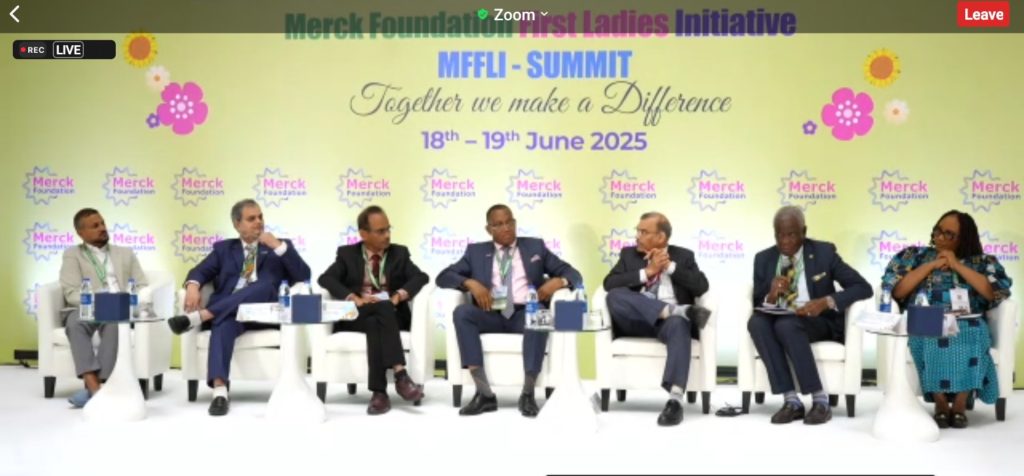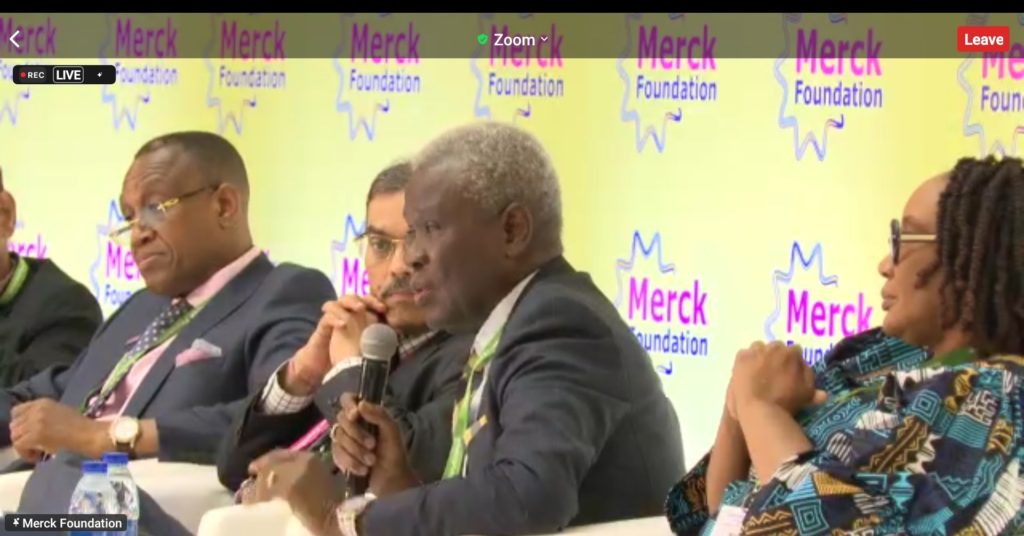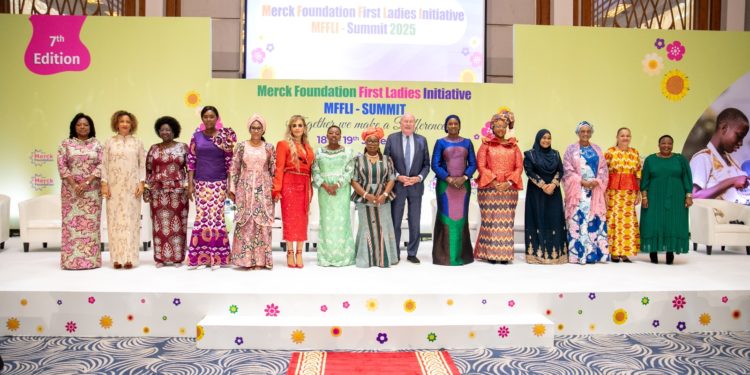By Kemo Cham
Merck Foundation’s vision is for everyone to live healthy and happy life, Dr. Frank Stangenberg–Haverkamp, Chairman of Merck Foundation Board of Trustees, has said.
Dr Stangenberg–Haverkamp said this vision has driven the Foundation’s mission to build and advance healthcare capacity, transform patient care landscape, break the stigma of infertility, empower women and support girl education in underdeveloped countries.
“This has been the basis of every program that had been launched successfully over the past 13 years,” he said in a statement during the opening ceremony of the Merck Foundation First Ladies Initiative Summit 2025 on Wednesday, 18 June.
The even held in Dubai, United Arab Emirates, marks 13 years of service in advancing healthcare, education, and women’s empowerment by Merck Foundation in Africa and Asia. It brought together hundreds of delegates from the beneficiary countries, among them First Ladies, senior government officials and medical professionals.
Merck Foundation is a private, charitable organization which provides financial support for philanthropic initiatives tackling important global health and social needs. The Foundation is funded by E. Merck KG.
One of its most impactful programs with remarkable tangible outcomes has been its scholarship program, through which it has committed to transforming the patient care landscape in the public health sector in countries it operates. The organization sees this as a vital catalyst for both economic growth and social development.
Through this initiative, hundreds of healthcare professionals have received training in specialist areas that were initially lacking on the continent of Africa, like oncology, cardiology and pulmonology. Many of the beneficiaries of these trainings were in attendance at the two-day event (June 18 – 19, 2025).
“I believe this gathering is far more than a summit. It is a powerful symbol of what we can accomplish when we unite for a shared vision and purpose,” said Dr Stangenberg–Haverkamp, who is also Former Chairman of the Executive Board of E. Merck KG, the parent company of all Merck businesses that spans healthcare, life science and electronics.
The Merck Foundation First Ladies Initiative Summit offers a platform to hear from African & Asian First Ladies about the strategies and impact of the Foundation’s partnership programs in building healthcare capacity, breaking infertility stigma and supporting girl education. The objectives include contributing to the social and economic development in the beneficiary countries, and improvement of access to quality and equitable healthcare solutions in these countries.
This year’s event also marks the celebration of the eighth anniversary of Merck Foundation which, according to Dr Stangenberg–Haverkamp, represents a milestone that reflects years of dedication, impactful partnerships and significant changes in the lives of millions across Africa and the most underserved and vulnerable communities.
“We all know the lack of financial resources is not the only challenge facing Africa, a more pressing issue is the scarcity of trained healthcare providers capable of effectively preventing, diagnosing and managing diseases in those countries, this sweeping shortage of medical and healthcare personnel has been one of the most critical barriers to access quality health care across the continent,” Dr Stangenberg–Haverkamp stressed.
According to the German Philantropist, before the start of Merck Foundation’s programs in 2012, there was not a single oncologist, fertility or reproductive care specialist on the continent, for example. He noted that countries like Gambia, Liberia, Sierra Leone, Central African Republic, Guinea, Burundi, Niger, Ethiopia, Namibia and Bangladesh particularly felt the impact of lack of specialists in these and many other areas.
“They either had no or very limited doctors in critical medical fields. I’m very pleased to say that since 2012 in the last 12 years and a half, Merck Foundation, together with partners, has significantly strengthened healthcare capacity by providing over 2,270 scholarships of one year and two-year Master’s degrees to further qualified doctors from 52 countries across 44 critical and underserved medical specialties,” he declared.
“Most of these doctors are becoming the first specialist in their respective areas in their respective countries,” he added.

In Sierra Leone, several doctors have benefited from these trainings, specifically in areas that include oncology, fertility and diabetes.
Merck Foundation played a huge role in the development of the country’s cancer care through the training of doctors in medical oncology and radiation oncology, among other areas.
One of the first beneficiaries, Dr. Tommy Koroma, pursued Medical Oncology Residency at the National Cancer Institute, Cairo University, Egypt. He has been at the forefront of efforts to build the country’s first cancer treatment programme.
“We’re not just providing scholarships. We’re building the first-ever wave of oncologists, fertility experts, pediatricians, and mental health specialists in countries that had none before,” said Dr Rash Kelej, CEO of Merck Foundation.
“This is not charity, this is transformation,” she stressed.
The Girl Child Education Program also saw over 1,000 scholarships awarded across 17 countries, guaranteeing the beneficiaries’ completion of their schooling.
Dr. Kelej said this illustrates the Foundation’s commitment to breaking cycles like early child marriage, poverty and gender-based violence.
“Education is the antidote,” she said.

Merck Foundation’s work also touch on media advocacy and training of health journalists as champions of awareness raising.
Part of the two-day event included a Health Media Training Program, which was designed to equip journalists with accurate medical information and storytelling skills to promote behavioral and cultural change on issues covered by the Foundation.






















